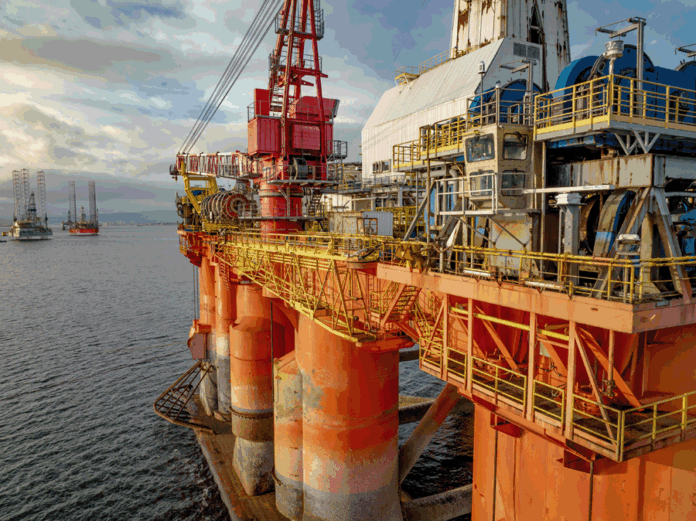As Gabon turns the corner on almost a decade of market disruption, the country’s energy sector is emerging with a renewed sense of purpose, backed by progressive regulatory reforms that are now bearing fruit for local and foreign investors alike
Gabon is a country on the move. Powered by forward-thinking policies and a cleaner, more sophisticated oil and gas industry, the country is attracting the attention of investors again on the promise of returning to consistent GDP growth last seen in the 1990s.
Many of these plans were put on hold by the COVID-19 pandemic, which dampened demand for Gabon’s hydrocarbon exports and sucked the punch out of the country’s 2019 reforms to its oil and gas regulations.
But on the back of rising barrel prices and a renewed commitment to exploration, Gabon is turning the corner and reaping the full benefits of reforms that have been years in the making.
Prior to the onset of the pandemic in 2020, the oil price crash of 2014 had also taken its toll on Gabon, for which oil exports accounted for 80% of total exports and 50% of government revenues at the time. OPEC’s decision to increase production in Q3 of that year roughly halved the global price of oil as well as Gabon’s exports. Moreover, reliance on a few large oil fields discovered as far back as the 1950s meant that output was already in decline, coupled with rising costs of production. When global prices collapsed, it rendered most of Gabon’s oil and gas industry unprofitable.
That prompted many foreign oil companies to leave the country in the following years, further compounding pressure on Gabon’s economy. While the country’s aging fields presented less of an appeal to investors, new discoveries and regulatory changes in Guyana, the Gulf of Mexico, Suriname, Namibia and other emerging markets offered better returns on less investment. By 2017, the only oil major still working in Gabon was TotalEnergies (then Total), following the withdrawal of Shell. FDI flows to the country fell from $1.5 billion in 2017 to $846 million in 2018.
Key objective of the revised hydrocarbons code is to eliminate the environmentally harmful practice of flaring associated gas, which previously had been standard practice in Gabon
But not all was lost. A thorough reappraisal of Gabon’s economic trajectory from 2015 identified the need for economic diversification, a transition towards renewable energy and a new set of regulations to govern how the oil and gas industry was administered. The 2019 Hydrocarbons Code (https://apo-opa.info/3oIPjqD) slashed taxes for production companies and cut the required stake of national oil company, Gabon Oil Company (GOC), in all production ventures from 20% to 10%, making Gabon a far more profitable place to do business than it had been since the 1980s.
In line with new commercial terms encouraging investment in Gabon’s petroleum sector, juniors and independents like Assala Energy, BW Energy (https://apo-opa.info/40hzMeJ) and Panoro Energy entered the market between 2016 and 2017, seeking to breathe new life into existing assets through enhanced oil recovery techniques, as well as explore opportunities for marginal field development. In June 2021, Gabon closed its 12th shallow and deep-water licensing round, which saw the provisional award of several blocks, with negotiations still ongoing. Meanwhile, International Oil Companies like TotalEnergies and VAALCO Energy prioritized nearby offshore exploration, which resulted in the South Tchibala 1HB-ST discovery as recently as last June.
The new code also prioritized the utilization of natural gas for the first time. Although Gabon has no proven pure gas fields, the associated gas from its many oil fields represents an underutilized resource that has the potential to transform the country’s economy and enhance power generation capacity. Last February, independent oil and gas company Perenco (https://apo-opa.info/3UsBYi6) secured a final investment decision for a one-billion-dollar, 700,000-ton-per-year LNG export facility in Cap do Lopez to enable the export of Gabonese gas from its offshore fields for the first time. Additionally, the plant will produce 15,000 tons of butane per year, which will substitute around 50% of Gabon’s butane imports, as well as 20,000 tons of LPG, in which Gabon will be self-sufficient.
This was followed by the signing of an MOU two months later with Gabon Power Company for the construction of a 21 MW gas-fired power plant at Mayumba in the south of the country, set to create 450 local jobs and bring electricity to 80,000 households. This will also help unlock the economic potential of a significant portion of the country and its population by raising rural electrification rates, while generating carbon credits for the Gabonese state.
Another key objective of the revised hydrocarbons code is to eliminate the environmentally harmful practice of flaring associated gas, which previously had been standard practice in Gabon. This ambition dovetails a renewed enthusiasm for developing Gabon’s abundant renewable energy potential. Grand Poubara Hydroelectric Dam and Kinguele Aval Hydroelectric Dam, with 160 MW and 70 MW, respectively, are a testament to the government’s ambitions to electrify Gabon’s remote interior without raising carbon emissions. Gabon’s equatorial location and vast solar power potential have also been recognized in recent years. Construction started on a 50 MWp photovoltaic solar power plant in Libreville last year, while the Ndjolé plant at Makokou will boast eight hybrid solar power plants with a total capacity of 2.2 MW.
The implications of these developments are far reaching. Diversifying Gabon’s energy mix and distributing generation capacity beyond the two main cities of Libreville and Port Gentil holds out the promise of economic diversification, industrialization and the inclusion of the majority of Gabon’s population into the world economy. The revised hydrocarbons code encourages foreign investors to get involved in the revitalization of Gabon’s oil and gas sector, while promoting the participation of local companies at various stages in the energy value chain.
All this and more will be further unpacked in Energy Capital & Power’s (https://EnergyCapitalPower.com) upcoming market report, Energy Invest Gabon. Keep following for more information about this exciting report!



